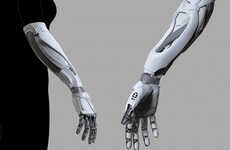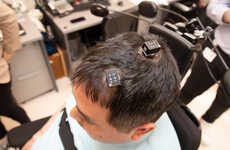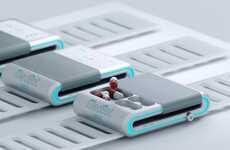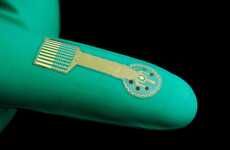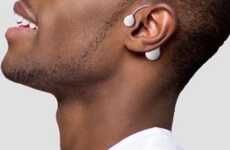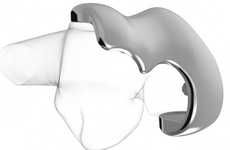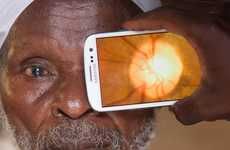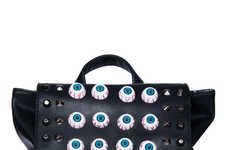Tim Cannon Had a Friend Install a Chip Implant into His Arm
Laura McQuarrie — November 2, 2013 — Tech
References: motherboard.vice & designboom
Tim Cannon is a biohacker who created a chip implant in his arm that is capable of recording and transmitting his biometrical data. The implant is not small either — it is contained in a box with a battery that can be charged remotely. But one of the most shocking things about this implant is that it was installed and stitched into Cannon's skin by a fellow biohacker, who is not a medical professional.
Cannon can truly call himself a DIY cyborg, who now has a circadia chip implant in his arm that is in tune with his body. Cook explains that his reasoning for installing this implant is so that his environment can be more responsive to his needs. He explains: "if, for example, I’ve had a stressful day, the circadia will communicate that to my house and will prepare a nice relaxing atmosphere for when I get home."
Photo Credits: designboom, motherboard.vice
Cannon can truly call himself a DIY cyborg, who now has a circadia chip implant in his arm that is in tune with his body. Cook explains that his reasoning for installing this implant is so that his environment can be more responsive to his needs. He explains: "if, for example, I’ve had a stressful day, the circadia will communicate that to my house and will prepare a nice relaxing atmosphere for when I get home."
Photo Credits: designboom, motherboard.vice
Trend Themes
1. Biohacking Implants - The trend of biohackers creating chip implants to record and transmit biometrical data presents disruptive innovation opportunities in the healthcare industry.
2. DIY Cyborgs - The trend of individuals self-installing cyborg-like implants offers disruptive innovation opportunities in the consumer electronics industry.
3. Personalized Environments - The trend of using biometric data to customize and automate living environments presents disruptive innovation opportunities in the smart home technology industry.
Industry Implications
1. Healthcare - The healthcare industry can explore disruptive innovation opportunities by leveraging biohacking implants for medical monitoring and treatment.
2. Consumer Electronics - The consumer electronics industry can tap into disruptive innovation opportunities by developing user-friendly DIY cyborg implants and related accessories.
3. Smart Home Technology - The smart home technology industry can capitalize on disruptive innovation opportunities by integrating biometric data to personalize and automate living spaces.
4.5
Score
Popularity
Activity
Freshness
